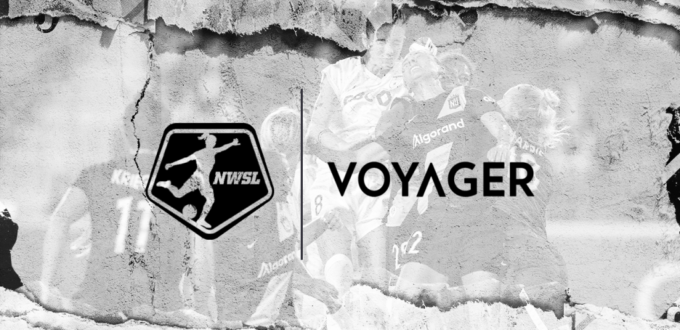The NWSL has told its players that they could be out money after cryptocurrency platform Voyager Digital, one of the league’s biggest partners, filed for bankruptcy earlier this month.
The league’s Voyager partnership, announced in December, was notable both in its size and in its construction. About half of the value of the deal was set to be paid to the league in cash, while the other half was earmarked for individual athletes to invest in cryptocurrencies via the Voyager platform.
Those accounts were never funded, according to multiple people familiar with the partnership, and now that Voyager is entering voluntary Chapter 11, it’s unclear how much—if any—the players will actually see. In a letter distributed Thursday to its athletes, the NWSL said that there were “no definite answers at this time on if, or when, the player accounts will be funded.”
The letter, which was viewed by Sportico, also says that if the accounts are not funded, the league intends to work with the NWSLPA to share some of the cash it did receive from Voyager.
“The Player Fund was always intended to be distributed into accounts at Voyager in cryptocurrency, with the goal of educating players regarding investment in the crypto space,” the letter said. “As such, there was always risk regarding the volatility of the cryptocurrency market.”
A representative for NWSL declined to comment. Representatives for the NWSL players union and Voyager didn’t immediately respond to request for comment.
The NWSL deal will attract attention across the sports world, where crypto companies have spent heavily in pursuit of new customers and market share. Over most of 2021, as currencies like Bitcoin and Ether rapidly rose in value, crypto trading platforms and lenders ran pricey Super Bowl commercials, nabbed arena naming rights, secured jersey ads, and rushed to sign team and league-wide deals. In the past few months, however, much of the market has collapsed, resulting in massive losses for investors and larger problems for some of the industry’s biggest companies.
The NWSL did receive its first year’s cash payment, according to one of the people, and Voyager’s field signs and website advertising remain active across the league. The crypto company is also a partner in the league’s 10th anniversary celebration, and remains part of that promotion on the NWSL website.
The league could be hoping that fulfilling its side of the deal helps its claim to money owed by Voyager, but it’s likely that the NWSL (and therefore its players as well) will be an unsecured creditor, according to Gregory Moffett, director at Preti Flaherty Beliveau & Pachios, Chartered LLP, and co-chair of the firm’s creditor’s rights and bankruptcy practice.
“If it turns out that the requirements that the debtor has to undertake, or the things that debtor must do, are not consistent with their plan to exit bankruptcy or to or to sell the company or whatever it is they’re planning to do, then [the NWSL contract] could potentially be at risk of rejection,” Moffett said in an interview.
Two months before Voyager announced its financial issues, the collapse of a prominent stablecoin rocked the industry. More recently, a prominent crypto hedge fund named Three Arrows Capital filed for Chapter 15 bankruptcy (its assets are frozen and the whereabouts of its founders are unknown), and shortly afterward, both Voyager and fellow lender Celsius Network filed for Chapter 11.
The NWSL’s Voyager deal is different from other league crypto deals because of those funded player accounts. As the women’s soccer league grows its commercial footprint, it has found a number of new partners willing and eager to directly support the NWSL’s athletes, many of whom also play on the U.S. women’s national team and are prominent figures. In July, for example, the league announced a partnership with CarMax that included an extra $5,000 for each player on the team with the best regular season record.
In a statement posted on its website last month, Voyager explained what its bankruptcy might mean for its customers. The company said that its cash reserves were both insured and untouched in a special type of bank account, and should be eventually available for withdrawal. The crypto in users’ accounts, however, will likely not be returned in full—Voyager said those options will depend on the restructure and the eventual result of more than $650 million in claims against Three Arrows, with which it had a business relationship. The statement did not directly address marketing commitments like its NSWL deal.
The NWSL partnership is likely what’s called an “executory contract,” Moffett said, meaning there are continual obligations on both sides—payment from Voyager; marketing exposure from the league. In Chapter 11 proceedings, those contracts are often at particular risk of rejection, he said.
Moffett added that it will likely be a long time before the league has its resolution. There’s typically a multi-month exclusive window for the debtor to lay out a reorganization plan, but any subsequent extension could push that to a year or more.
The NWSL letter also says that Voyager asked the league if it could share an update directly with the players. The league says Voyager will be sending that update separately. It’s unclear if that has already happened.

No Comments Yet